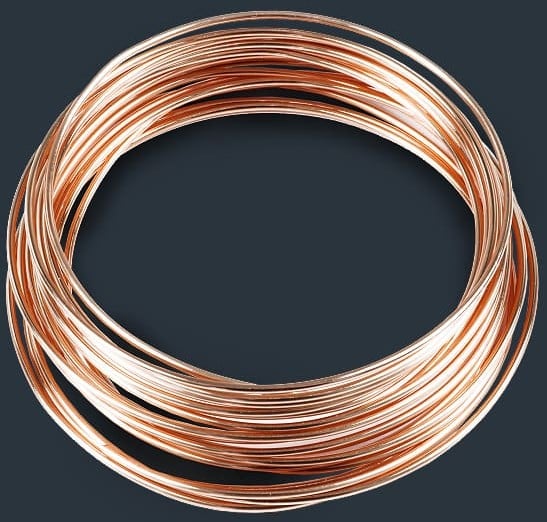Explore the Perks of Using Premium Copper Products for Home and Market
Explore the Perks of Using Premium Copper Products for Home and Market
Blog Article
Exploring the Diverse Applications of Copper Products in Modern Industries
From improving the efficiency of electric systems to playing an important role in sustainable power technologies, the adaptability of copper is noticeable. As sectors increasingly focus on technology and sustainability, the diverse applications of copper require a closer exam, particularly regarding their prospective influence on future technological developments and ecological practices.
Electrical Applications of Copper
Copper is an important material in the electrical market, representing approximately 60% of the overall need for non-ferrous steels around the world - Copper Products. Its premium electric conductivity, which is virtually two times that of light weight aluminum, makes it the recommended choice for a vast array of electrical applications. From electrical wiring systems in residential and commercial structures to high-voltage power transmission lines, copper ensures efficiency and reliability in electricity distribution
Along with wiring, copper is essential to the production of electric components such as transformers, motors, and generators. These parts leverage copper's thermal conductivity and pliability, essential for warm dissipation and efficient efficiency. Copper's resistance to corrosion boosts the life expectancy and sturdiness of electrical systems, making it a cost-efficient solution in the lengthy term.
The development of sustainable power resources, such as solar and wind power, has actually better boosted the need for copper in electric applications. As industries transition towards sustainable energy services, copper's function comes to be a lot more crucial. Generally, the versatility and efficiency features of copper strengthen its standing as a cornerstone material within the electric field, driving innovation and efficiency across different applications.
Pipes and Piping Solutions
In modern-day pipes systems, the option of products substantially affects both performance and durability. Copper has arised as a recommended alternative as a result of its special residential properties, including corrosion resistance and antimicrobial characteristics. These features make certain that copper piping remains resilient and safe for delivering potable water, a critical factor to consider in property and business applications.
Among the crucial advantages of copper in pipes is its capacity to hold up against high temperatures and stress, making it appropriate for a selection of applications, from warm water systems to home heating and cooling down networks. Additionally, copper's flexibility permits easier installment in complicated piping formats, decreasing the risk of failings and leaks.
One more noteworthy advantage is copper's lengthy life expectancy, typically going beyond half a century with correct maintenance. This long life not just reduces replacement expenses yet additionally adds to lasting techniques by decreasing waste. Furthermore, copper's recyclability aligns with contemporary ecological standards, advertising a round economic situation within the plumbing market.
Copper in Renewable Resource
The versatility of copper prolongs beyond plumbing applications, playing a crucial duty in the renewable power market. Its excellent electrical and thermal conductivity makes it a necessary product in the production and circulation of renewable energy sources, especially solar and wind power. In solar panels, copper is utilized in solar cells and circuitry, promoting efficient power conversion and transmission. Its resistance to deterioration makes certain long-lasting efficiency, which is essential for maximizing power output gradually.

Furthermore, as the worldwide need for electrical cars (EVs) boosts, copper's duty in battery systems and billing infrastructure becomes much more substantial. The product's ability to conduct power efficiently is essential to the performance of EV batteries, enhancing range and billing rate.
Copper's Duty in Electronic devices
Electronic devices making depends heavily on copper's phenomenal residential or commercial properties, especially its high electric conductivity and thermal effectiveness. These attributes make copper a suitable option for a vast array of electronic parts, consisting of adapters, circuit card, and electrical wiring. The metal's capacity to successfully transfer electrical signals guarantees minimal energy loss, which is important in high-performance electronic tools.
In addition, copper's thermal conductivity plays a significant function in heat dissipation, shielding delicate elements from overheating. This is especially essential in contemporary electronics, where compact layouts cause raised warmth generation. Copper is likewise favored for its pliability and ductility, enabling it to be quickly formed into intricate designs that satisfy the demands of sophisticated electronic applications.
With the surge of consumer electronic devices, telecommunications, and electrical automobiles, the demand for copper in the electronic devices industry proceeds to expand. More Info As technologies in innovation evolve, copper stays integral to accomplishing greater performance and integrity in electronic items. Its recyclability further improves its allure, as producers look for sustainable solutions without jeopardizing quality. Hence, copper remains a foundation product in the ever-expanding field of electronics.
Cutting-edge Makes Use Of in Manufacturing

One significant application remains in additive manufacturing, where copper-based products are employed in 3D printing procedures. This permits the production of lightweight parts and complicated geometries, especially in the aerospace and auto industries. In addition, copper's thermal conductivity makes it a perfect selection for heat exchangers, enhancing efficiency in commercial air conditioning systems.
Additionally, the surge of smart manufacturing has actually seen the unification of copper in IoT devices, where its conductive abilities sustain advanced picking up innovations. In the world of eco-friendly power, copper is pivotal in the manufacturing of photovoltaic panels and wind generators, facilitating much more effective energy conversion and distribution.
As sectors make every effort for sustainability and development, copper's flexibility and efficiency remain to place it as a crucial material, driving improvements in production and adding to the advancement of smarter, extra efficient products.
Final Thought
In summary, copper products demonstrate exceptional flexibility across various modern industries. Copper Products. Their superior conductivity enhances electrical applications, while corrosion resistance ensures reliability in pipes. The indispensable duty of copper in sustainable energy and its important feature in electronic devices highlight its value ahead of time sustainable techniques. Furthermore, innovative usages in producing highlight copper's flexibility and sustaining relevance. Collectively, these applications highlight copper's essential contribution to technical progress and commercial effectiveness in contemporary culture.
From enhancing the effectiveness of electrical systems to playing an essential duty in eco-friendly energy modern technologies, the flexibility of copper is evident. As industries progressively focus on development and sustainability, the varied applications of copper necessitate a closer evaluation, specifically regarding their possible effect on future environmental techniques and technological developments.
The development of eco-friendly energy sources, such as solar and wind power, has additionally boosted the need for copper in electric applications. In general, the adaptability and efficiency characteristics of copper solidify its standing as a cornerstone material within the electric market, driving development and performance throughout various applications.
The convenience of copper expands past plumbing applications, playing an essential role in the renewable energy industry.
Report this page